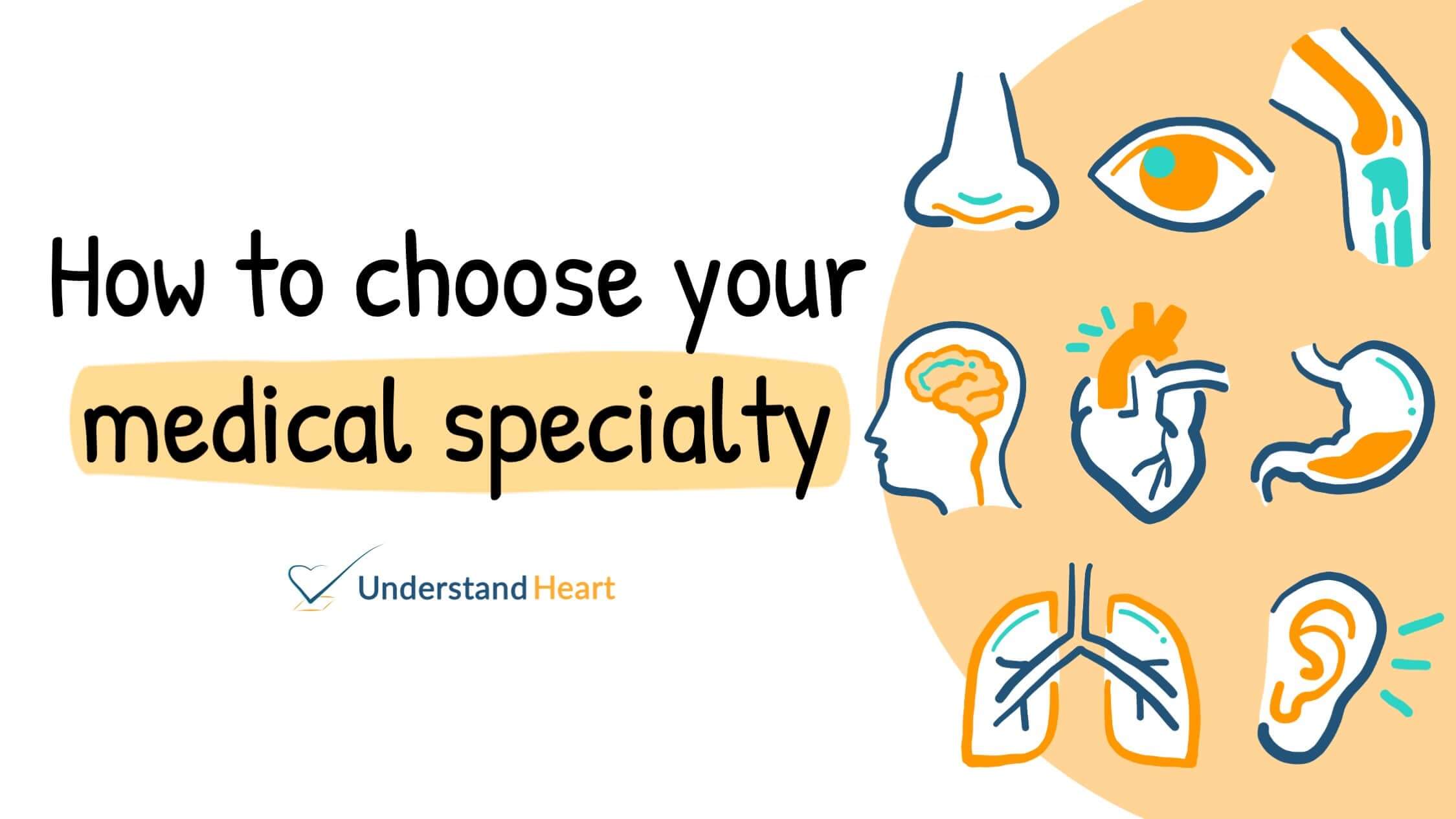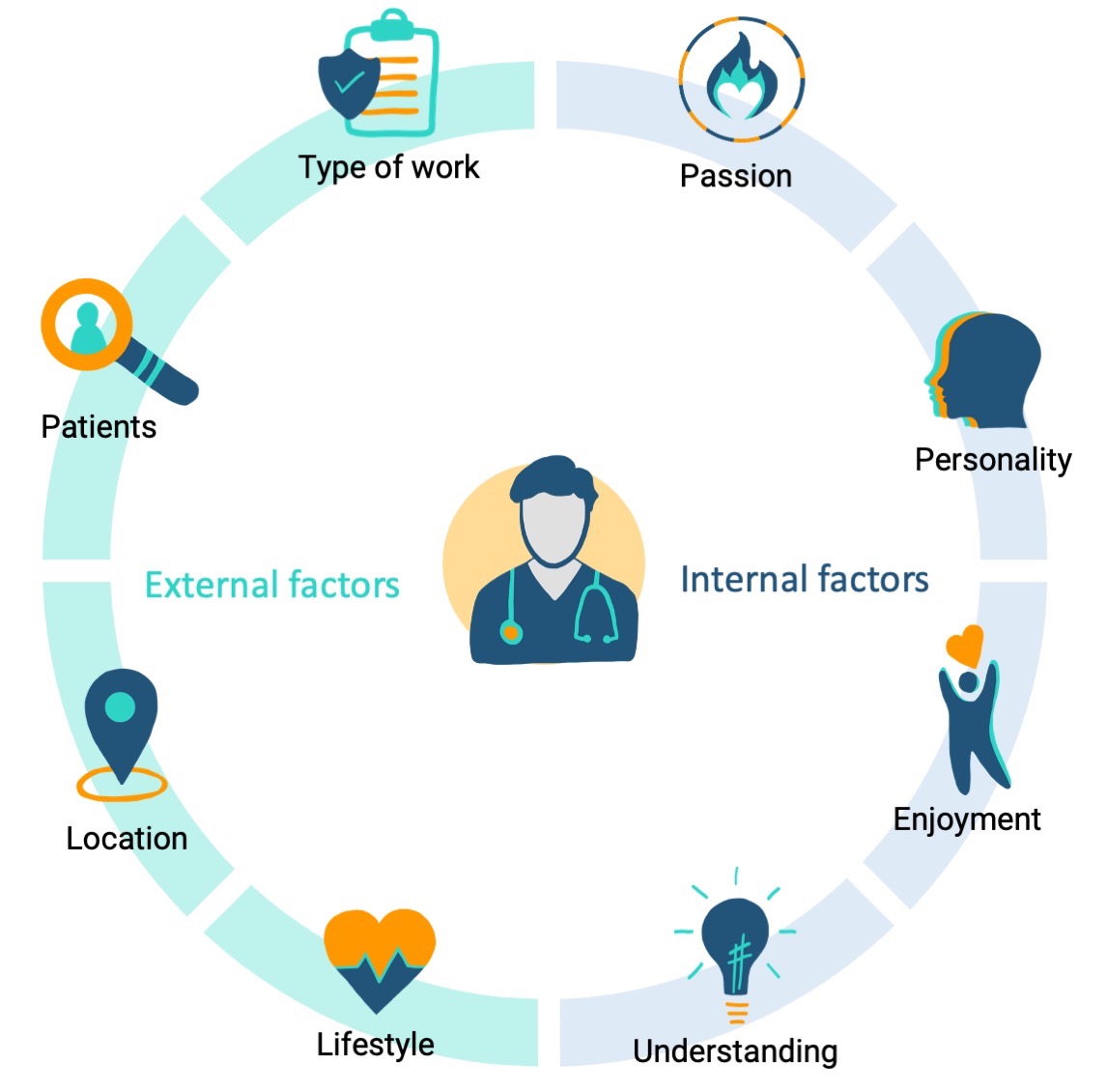How to choose your medical specialty | Enhancing your CV

So, you have now graduated from medical school and is in the midst of celebrating years of hard work and getting your career underway. Apart from the initial challenges of becoming a junior doctor including things they don’t teach in medical school; you are faced with another big decision in life – what specialty to choose? Many junior doctors don’t take this into consideration early on during their career (myself included), and when it comes to the actual time to choose the specialty, you may not have accumulated as much evidence of commitment to the specialty as your colleagues.
Throughout medical school, there would be some subjects which capture your interest more than others, one which will make you read more than required, spending endless hours learning the deep intricacies of that specific organ, one that sparks joy (as Marie Kondo would put it)… or not. For me, I did not have any specific passion early on in my career and was not sure what would suit me the best. I was afraid of committing early on and making the wrong choice. I admire colleagues who knew right from medical school what their future would look like. I suspect many doctors feel the same way.

I want to explore some factors which I considered when choosing my specialty and hopefully this may provide some food for thought to guide you into your chosen specialty, whichever stage of training you are in. I have divided it into internal and external factors with some details within each factor. However, even if you are not sure, there are some useful generic things that can be done to help improve your CV whilst you are pondering over the options.
Does this specialty excite you? Can you do this for the rest of your life? Majority hands-on procedural skills or more medical reasoning? How well do you understand the subject? Instant gratification vs. longer term follow-up? Able to handle uncertainty?
Internal factors
- Passion
- Personality
- Enjoyment / fulfilment (Procedural vs Thinking)
- Understanding of the subject
I think in most cases, doctors have some degree of passion about the work which they do, and this translates into better outcomes, both in terms of their patient care and their own career progression. I also believe that passion in a certain specialty is determined by many complex factors – past experience, personality, role models and may not be easily defined. The lack of passion or in some instances the disliking of a subject matter is slightly easier defined. Different specialty attracts different personalities and similarly different specialties provide different levels of fulfilment, which is entirely dependent on how much you value the things that you do. Being able to excel in what I do is something that I have always strived to do therefore having a better understanding towards the specialty will gravitate me towards it and vice versa.
Hospital based or community based? Do you enjoy long-term follow up patients? Do you enjoy working with younger people? Do you like to be mainly based in the theatre or ward or mixture? Waking up in the middle of the night for procedures?
External factors
- Lifestyle (Pay / Work-life balance / On-calls)
- Location (Hospital / Community / Others)
- Patients (Types – including age groups / length of contact)
- Type of work (Procedural / Ward related / Policies)
Something else that is very important to consider would be the type of lifestyle you prefer in the future, or as some interviewers will ask “Where do you see yourself in x years?” I think this is a very valid question and definitely plays an important role in determining your specialty. The difference in pay is less here in the UK when compared to other countries such as the US but can still play a part. Knowing how many hours of on-call, the type of day to day work you do and patients that you interact with are all very important. These external factors are things which you can learn about by talking to someone who is in the specialty. The importance of the experience working in the specialty cannot be replaced in most other ways.
Choosing your specialty is one of the few potentially life-changing decisions which you will make throughout your medical career. Therefore, one should really take your time to consider the different specialties before making the decision. In the meantime, there are some generic things that can be done to improve your CV for application not matter which specialty you end up in.

Generic tips for improving chances for specialty training
1. Teaching and teaching degree
Teaching is very important in medicine and being involved in teaching is a requirement for many specialties. Get involved in teaching whenever possible even if it is just a session or 2. Sign up to teaching courses (there are many available online) or even pursue a medical education degree as these will not only improve your teaching methods but will also provide you with bulk on your CV.
2. Quality improvement project
Part of understanding and improving healthcare system is through the use of quality improvement projects. In most hospitals, there would be established projects which anyone who are keen can participate in. Taking part in these will improve your knowledge of the subject involve and more importantly provide you with discussion points during your specialty interviews. One tip is to ensure you do a complete cycle with your projects to score the maximum points.
3. Publications and presentation
There are plenty of opportunities for publication and presentations (locally or nationally) available. Most consultants would have a list of rare / interesting cases which they have been involved in but do not have the time to write it up or publish it. With their guidance, getting your first publication may not be that difficult.

